How do children develop thinking and learning skills?
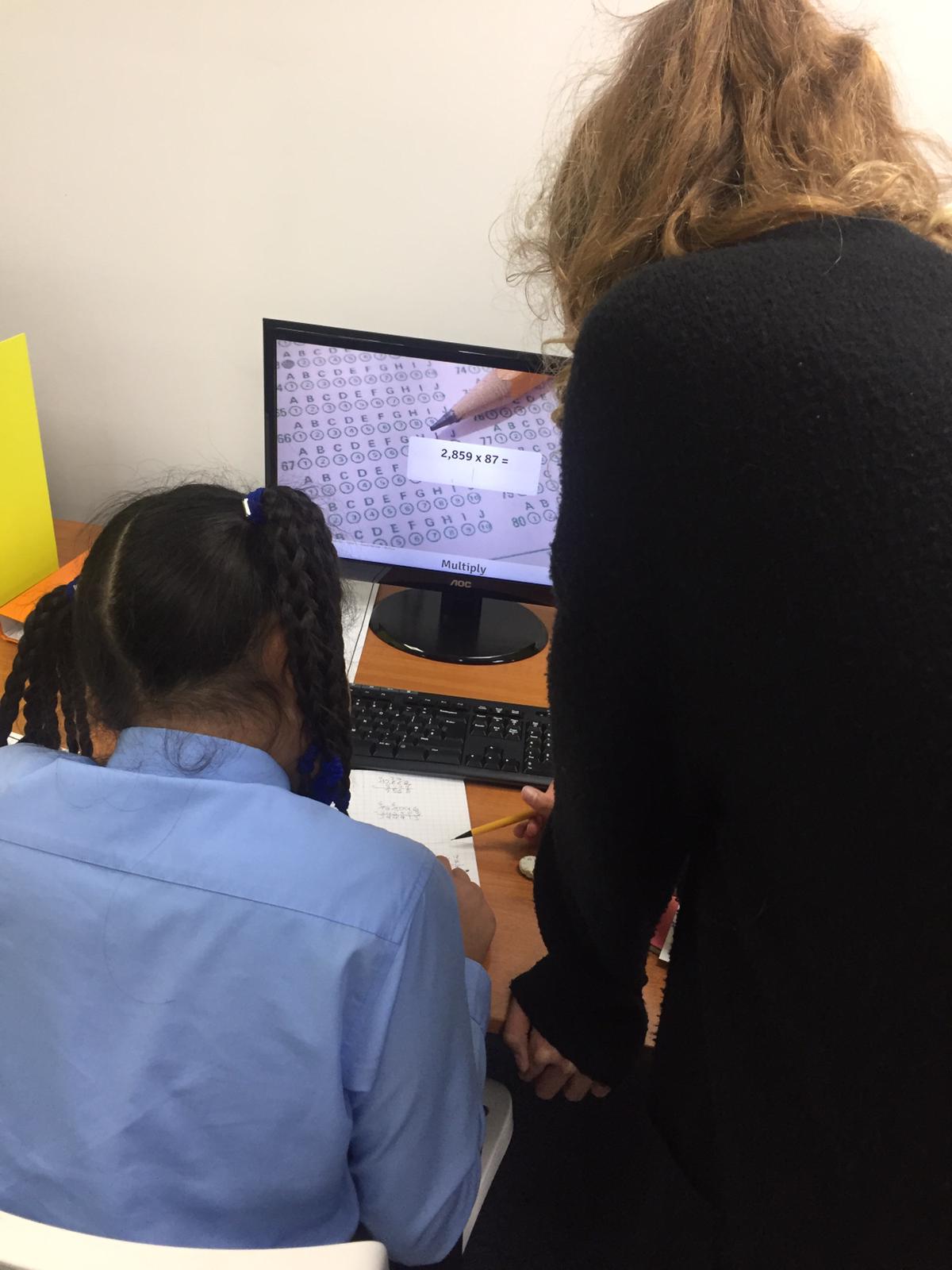
Children learn through doing and playing, which builds their brain
development.
These connections are called neutral pathways. This is why
it’s important for children to repeat what they learn. This way the neutral
pathways become stronger. So, how do children develop thinking and
learning skills?
Children are constantly learning new skills at their own pace. They go
through different stages of development. Once children learn the basics of
one area, it is easier for them to expand on that area, building upon their
knowledge.
How children develop thinking and learning skills:
Processing information
There is certainly no one-size-fits-all with learning. This is why it is useful
to teach children in different ways. Some may be auditory learners, who
learn best when there is music playing or background noise. While others
may learn by doing, remembering more through a hands-on approach.
Teaching children that there are different methods of processing
information will help each individual to grasp it in their own way.
Thinking skills
Encourage your child to be curious and explore new ways of thinking. Try
to ask them how they reached a certain conclusion by asking “why?”
Similarly, get your child to go beyond “what?” and instead question
“why?” and “how?” This will open up a new discussion and let them
actively think about what they are asking. It is also worth teaching your
child that it is okay to agree and disagree with things. If they don’t
understand or support someone’s statement, let them know that they can
ask more about it. Then they can form their own opinion on the subject
and provide a reason for thinking this way.
Problem solving
Thinking critically about information and scenarios children are presented
with will help them come to their own conclusions. This way of thinking
requires a lot of thought and analysis. It will encourage children to think
for themselves and challenge things more.
How are GCSEs being evaluated this year?

Students across the country will receive their GCSE results on Thursday 20th August 2020. Although what makes this year’s results different to previous years is the way they are being graded. So this poses the all-important question, how are GCSEs being evaluated this year?
Students are currently awaiting grades from exams they were unable to sit due to the coronavirus. Instead, GCSE exam grades will be assessed based on teacher’s predictions. These predictions are then fairly moderated by the exam board.
What happens now?
Usually, students will go into school on results day to collect an envelope of their grades. However, because of social distancing, as a general rule they will receive results online. This will be either via an online portal or email. Students are unable to discuss grades with friends and say their farewells to teachers this year, unfortunately.
How are the GCSE results assessed?
After the decision was made by Ofqual in May to cancel exams, schools were told to ask teachers to assess their students on their previous academic progress. This includes mock exams, assignments and homework.
40 per cent of results are expected to be downgraded due to the algorithms predicting students’ grades.
What if I’m not happy with my results?
Students can ask their school if they have made an error when finalising and submitting their grades. If this has happened, students can appeal to the exam board. They will not be able to individually appeal their results to the exam board, however. If students are unhappy with their results, they may take their GCSE exams between the 2nd and 23rd November.
3 top tips to prevent summer learning loss

The summer holidays allow children to unwind and have fun after a year of learning. This year especially, as many children are having to work from home during a pandemic. Despite this, it is important to keep up to date with learning!
Going over the school syllabus with your child every so often will help to prevent summer learning loss. Help them to understand anything they are stuck on, so they can get a head start for the new academic year.
Try our 3 top tips to prevent summer learning loss:
Make time for reading
Putting aside a few hours a week for reading is highly beneficial for your child. It will improve their vocabulary, improve their communication and help with writing skills. Encourage them to write down all the new words they’ve learnt and use it in their vocabulary.
Practice papers
There are plenty of free practice papers online for every year group. This is an easy way for your child to practice the English, Maths and Science syllabus. You can monitor your child’s progress by giving them regular practice papers to complete and marking it together. Go through the incorrect answers together and help your child to understand where they went wrong.
Make learning fun
During the summer holidays, the thought of learning might not be the most exciting for your child. But learning can be made fun! There are educational apps and websites to try, you can make up learning games, or watch something educational together. Making learning interactive will involve your child in the learning process and help them to retain information.
3 ways to improve children’s memory from home

Improving your children’s memory from home can be simple and fun. There are many games and tricks to try out, like StudyBox’s 3 ways to improve children’s memory from home.
There are many games and activities to improve muscle memory, association and visualisation.
These will help children to actively engage whilst improving their memory.
Try these 3 ways to improve children’s memory from home:
Active reading
- Active reading is when children are involved with reading the text. This heightens the learning process whilst reading.
- There are many different strategies to try:
- Writing down new words or highlighting them.
- Reading aloud, to improve pronunciation.
- Critical thinking and questioning the narrative.
- Identifying literary devices, for example: alliteration, personification, hyperbole…
- Engaging with the text improves memory through active reading.
Word games
- Playing word games with children is free and easy.
- There are many word games for improving memory.
- The game ‘I went shopping and I bought…’ involves saying an item which can be found in the supermarket. Then the next player repeats the sentence and adds an item. As the game goes on, the players have to remember a long list of items, and repeat them, whilst adding on a new item each turn.
- This encourages all players to concentrate, as well as remember the long list of items.
Card games
- Playing card games, like ‘Memory’ can help to improve muscle memory.
- It involves turning placing the deck of cards spread out on a surface face down. Then take it in turns to turn over two cards at once. The participants must remember which cards have been turned over. Once two pairs of the same numbered care are turned over, the player can take the pair.
- This game improves concentration and focus. The players must memorise as many cards as possible in order to turn over pairs and complete the game.
Visualisation
- Visualising what is being taught can help children to remember more effectively.
- It allows what is being learnt to be associated with an image, which can be easily remembered.
- Children can associate images with what is being memorised.
- For example, children can create a mind map, which can be colour coded, or images can be drawn relating to the subject being memorised.
Teaching your child equivalent fractions

Fractions are important for children to learn, they are taught on school syllabus, as well as useful for day-to-day life. the first step is teaching your child equivalent fractions.
Equivalent fractions are fractions with different numerators (the number at the top) and denominators (the number at the bottom), but they represent the same values.

- For example, 1/2 , or one half, is the same as 2/4, or two quarters.
- This is because 2/4 will reduce to 1/2, which is its simplest form.
- They both represent the same value, they are just written differently.
So, equivalent fractions are fractions which look different from each other but they are the exact same value.
- 2/3 is the same as 4/6.
- This is because the numerator 2 goes into 4 twice.
- The denominator 3 also goes into 6 twice.
So:
2 x 2 = 4
3 x 2 = 6
This would become 4/6.
- It’s the same as 1.
- Take 1 to be 100, or one whole.
- Therefore, 1 is the same as 3/3, which is a complete fraction.
- This is because the numerator and denominator are the same.
Teaching your child equivalent fractions at home is simple once you break it down.
Knowing that the fractions are the same value, but written differently is the most important rule.
Once this has been taught, then you can provide examples and explain why they are the same values.
5 steps to help your child to maintain a positive mindset

A positive attitude is a great skill that your child can learn to acquire.
As a parent, you can encourage your child to maintain a positive mindset. You are your child’s role model in life, and taking time to listen and point them in the right direction will help them to have an optimistic approach.
Try these 5 steps to help your child to maintain a positive mindset:
Help your child to recognise their achievements
By highlighting their accomplishments, it will encourage them to keep up the good work. Give credit where credit is due., it will go a long way!
Turn negatives into positives
Instead of providing negative comments or feedback, try to turn it into something they can learn from. So, rather than criticising, why not say what they could have done better in that situation? This way, it is easier to learn from it and constantly improve.
Communication goes a long way
Ask your child what went well with their day, and if there was anything that didn’t go too well. Encouraging your child to speak about what’s on their mind will help them to get anything off of their chest.
Build upon their self-esteem
Help your child recognise what makes them unique and special. Encourage them that this is a positive trait and to embrace it. This will improve their self-esteem and self-awareness, making them able to see their strengths and skills.
Turn problems into solutions
If there’s any issues or problems that your child is facing, encourage them to think about how to resolve it. This will avoid stressing about the problem and working out a solution. Being rational is a way of overcoming negatives and working out how to fix them.
A positive mindset will compliment your child’s learning, providing an optimistic approach and a can-do attitude.
3 steps to helping your child set and reach goals
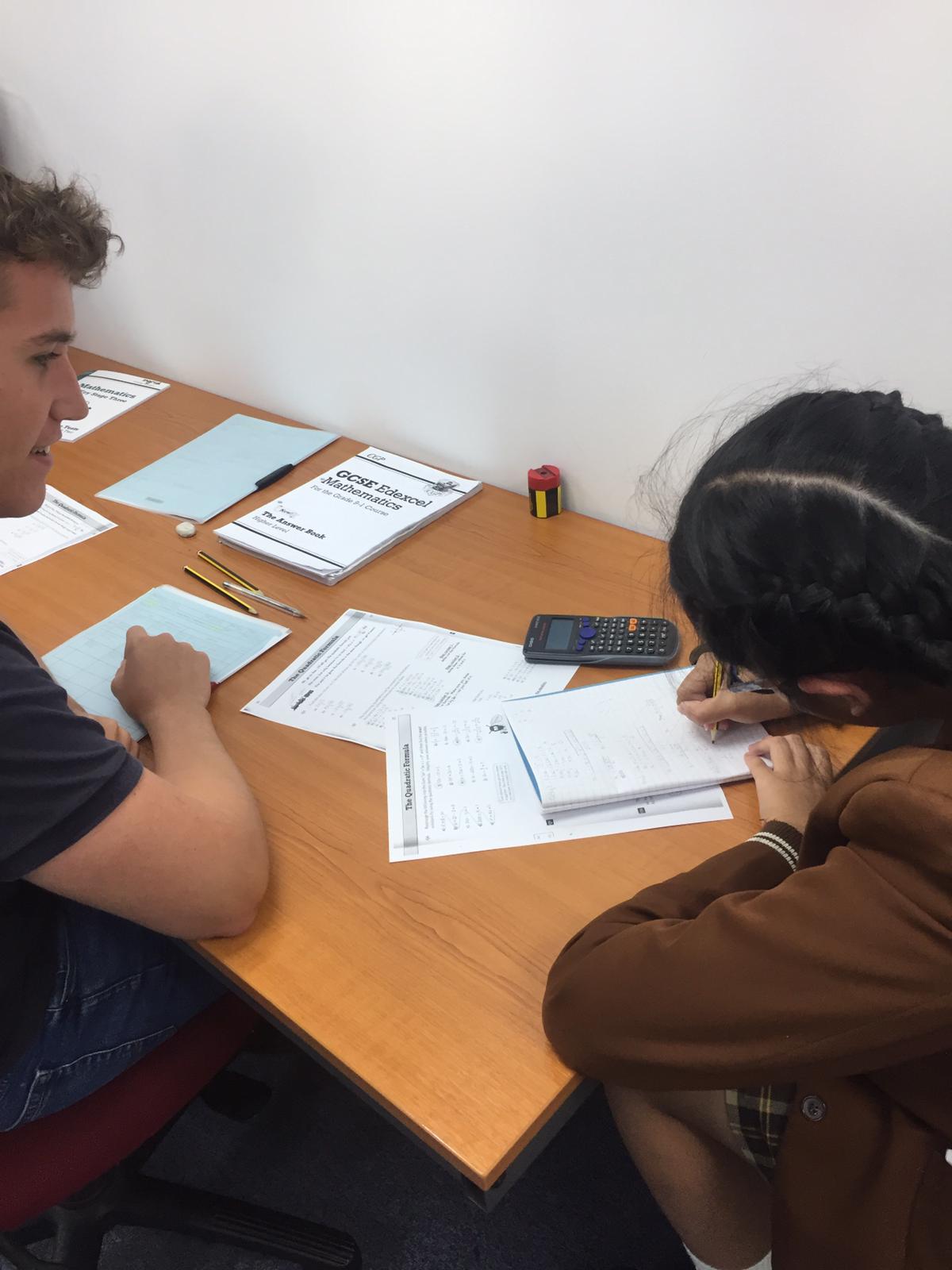
Setting goals will benefit your child in many ways. It will help them aim towards any achievements and make tasks seem less daunting.
But as a parent, how can you help your child to set and reach their goals?
Try these 3 steps to helping your child set and reach goals:
Identify the goal(s)
- Ask your child what goals they would like to set.
- Try writing down the goals somewhere your child can see them. This way they will be reminded of what needs to be achieved.
- Let them monitor their progress. Then the tasks will feel like a rewarding process when they are accomplished.
Make a schedule
- Create a realistic schedule for your child to follow.
- You can get creative with it. Try making a chart with the goals and adding stickers when they are achieved. You can even colour code each task to make it visually pleasing to look at.
- A visual chart will make the goals easy to monitor and keep on top of.
Create a reward system
- Your child may feel more motivated to complete their goals if there’s an incentive.
- It could be anything, from a gold star on the chart, a chocolate or even an activity.
- If the goal is challenging, an incentive can make a big difference. Even praising your child and letting them know they are doing a good job will go a long way.
Following these 3 steps to helping your child set and reach goals will provide a structure for completing tasks.
It will also make the end goal less daunting by breaking down the process.
3 ways to kick-start your child’s revision
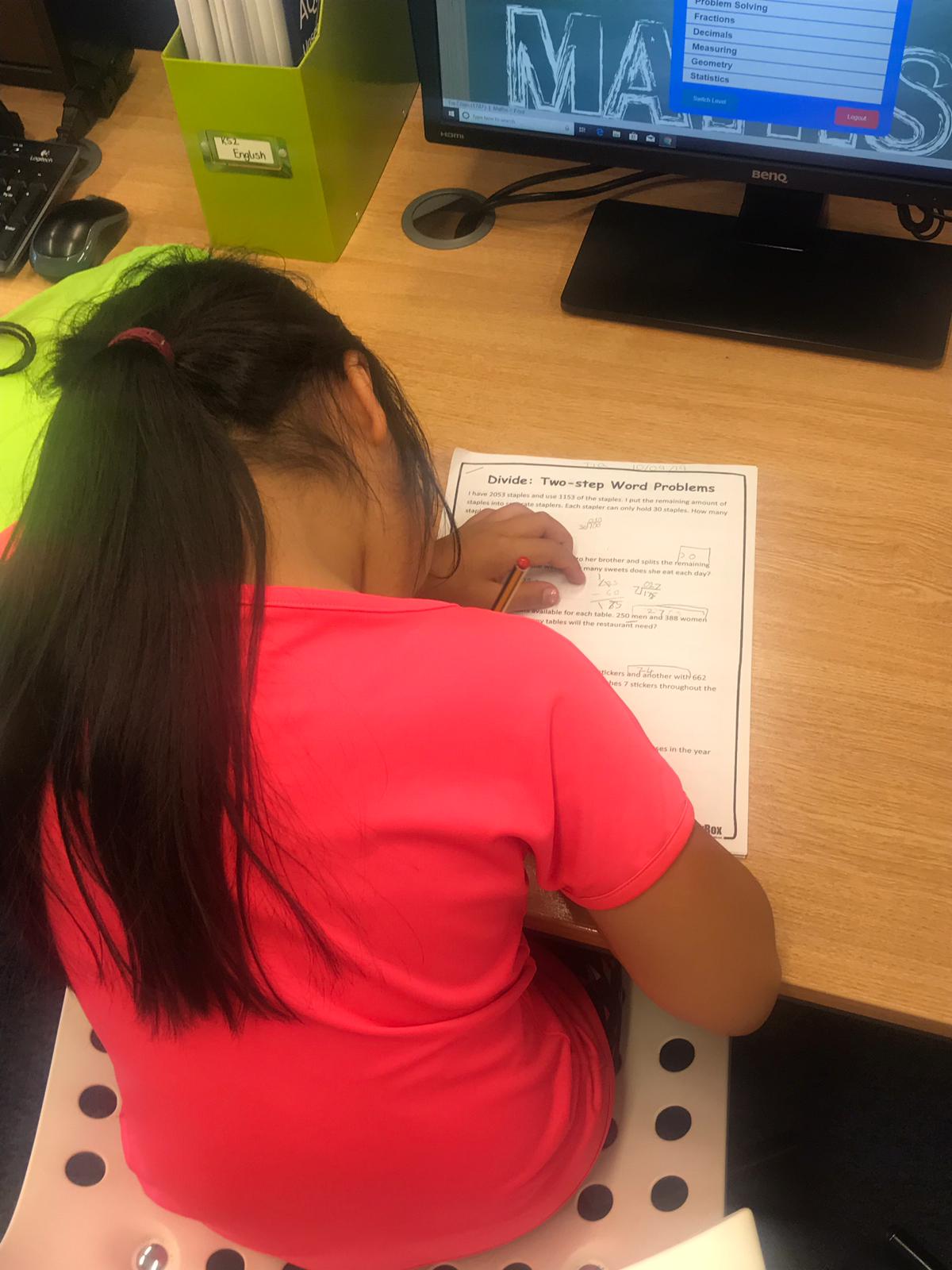
Exam season is fast approaching, and whether it’s SATs, GCSEs or the 11+, your child will start preparation soon.
It’s normal for children, as well as parents, to worry about exams!
But with the right revision and preparation, revision has never been so easy…
Here’s 3 ways to kick-start your child’s revision:
Planning
- Mapping out the time before your child’s exams will provide an indication of how long there is for completing revision.
- You can make a timetable together and record the key exam dates.
- Try adding a schedule to the timetable, like how many hours to spend revision and on which days.
- Don’t forget to include study breaks on the timetable, too!
Create a study environment
- Dedicate a special place where your child can revise and complete schoolwork.
- Creating a quiet and secluded environment will ensure that there are no distractions.
- This means that information can be retained easily and work completed effectively.
- Make sure they have all the supplied needed for studying so they won’t have to get up and get distracted.
A healthy lifestyle
- Helping your child maintain a healthy lifestyle will benefit them when it comes to schoolwork.
- Setting a time for bed every night will create a routine and ensure they are not tired for a productive day’s work!
- A balanced diet also has an impact on the body and mind. This includes fruit, vegetables, fish, meat and carbohydrates. Nutritious breakfasts are also important in the lead up to and the morning of exams.
- Don’t forget to encourage them to drink lots of water, too!
Exam season doesn’t have to be daunting, and with the right planning and preparation your child will feel more confident.
3 ways to kick-start your child’s revision will help with their work ethic and organisation.
It’s not just about revision, it is also important to maintain a healthy lifestyle and have a peaceful setting to revise in.
3 effective ways to improve your child’s concentration
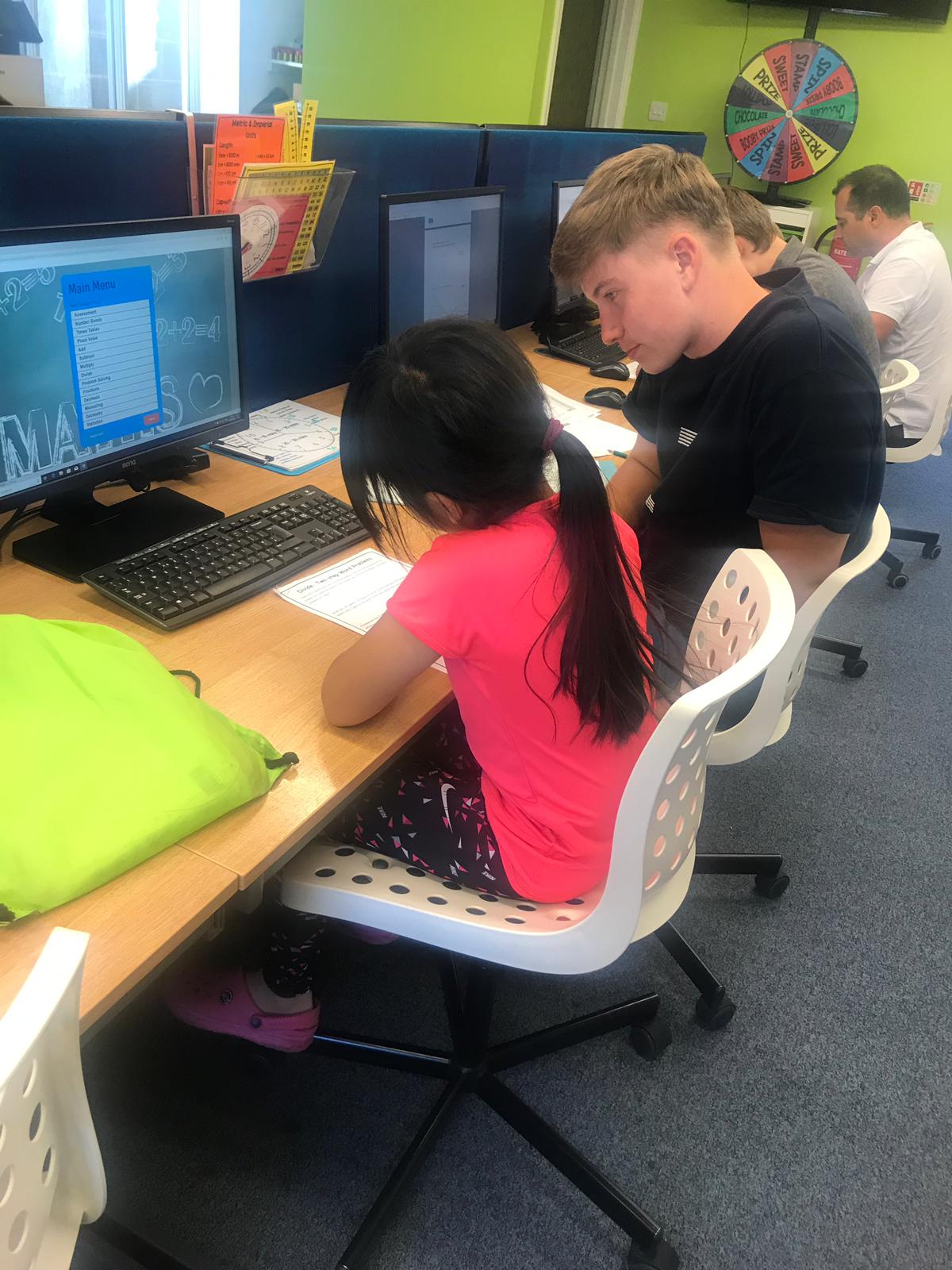
Understanding how children learn and memorise information can help us to improve their education.
The way that children’s brains are wired is completely different to adults, which is why children’s attention spans are typically shorter.
Have you ever wondered how you can improve your child’s attention span so that their focus can improve when learning?
Try our 3 effective ways to improve your child’s concentration:
Playing focus games
You can make learning fun by incorporating games into daily activities. Try playing card games like ‘Memory’ or puzzles like Sudoku or Crosswords, these will improve attention span as well as focus. If you take away electrical gadgets like smartphones and tablets it will be less distracting, allowing your child’s concentration to be solely on the activity.
Create a distraction-free zone
By creating a distraction-free environment, your child will have somewhere dedicated for studying and completing work. This is a space where they can focus on the task they are completing without being tempted by the TV, mobile phones or other distracting electronics. Create an environment that is comfortable and calming for your child so that it makes the tasks enjoyable. If they concentrate best by listening to calming music, then why not try putting on soft background music. Make sure everything that your child needs is accessible so they don’t have to get up and search for anything.
Set a routine
By creating a timetable for daily activities, your child will have a structure to follow and know what they need to complete. If there’s a set time for completing homework, having dinner and other activities like reading, it can help to program their mind so they are aware of what they need to get done. This will also help with time management and organisation!
You can help your child with their concentration skills a number of ways! Training children’s brains to focus is something that will benefit them throughout their life. Concentration can be improved through brain training games, creating a peaceful environment for completing tasks and setting a routine to follow.
3 ways to help your child at home with their work
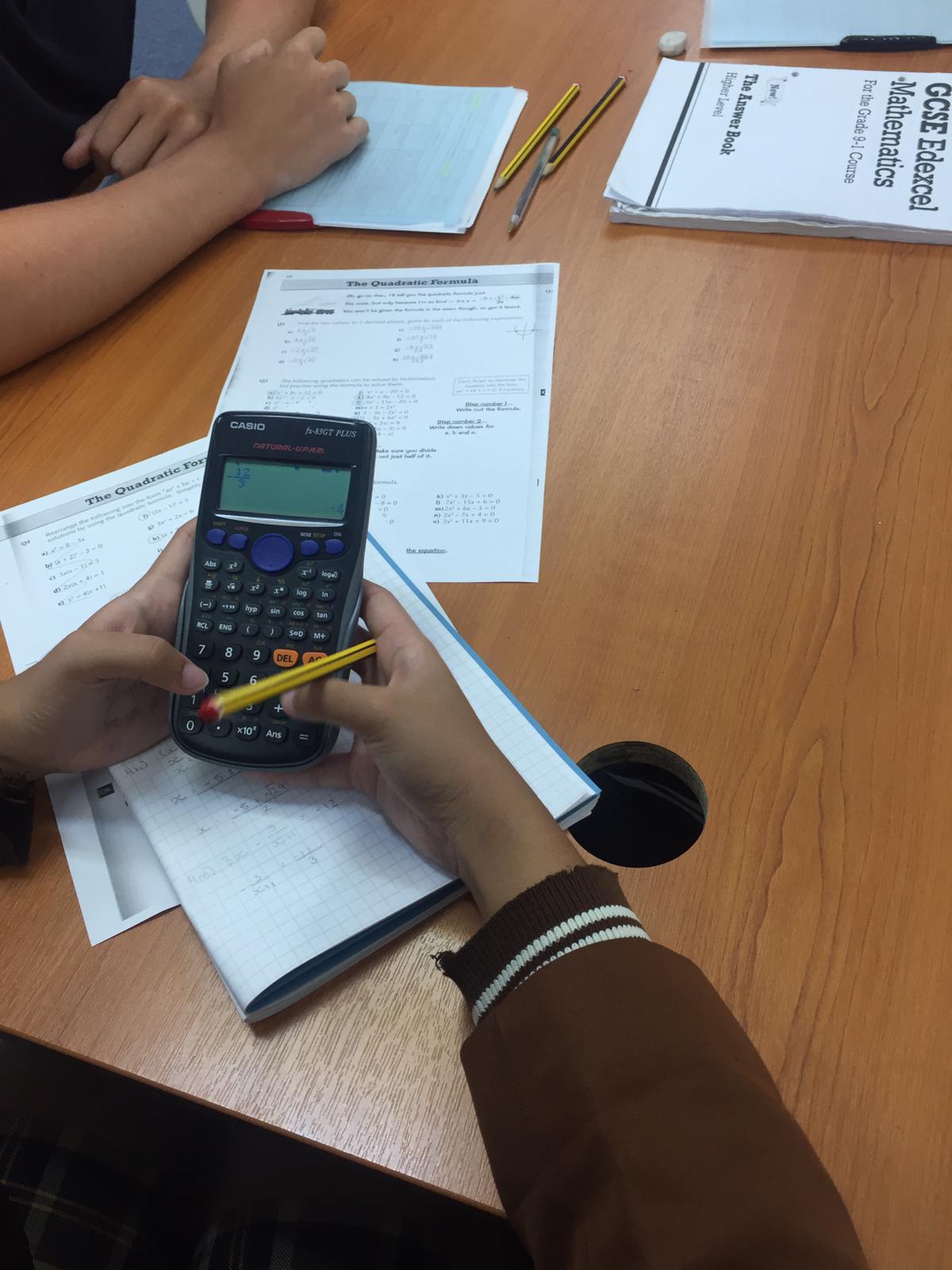
As a parent, there are many things you can do at home to help your child with their school work.
If you’re wondering what you can do to improve education, why not try our 3 ways to help your child at home with their work:
Healthy Lifestyle
- Ensure your child is getting enough sleep. It’s recommended that children need between 8 and 12 hours of sleep every night.
- A healthy, balanced diet will improve the way your child functions. For example, calcium and Vitamin D helps strengthen bones and growth, iron is good for cognitive ability and Omega 3 helps the brain to function.
- Lots of fruit and vegetables are important, as well as meat, fish and wholegrains.
Routine
- Establishing a routine for your child will help them be organised and have structure in their day-to-day life.
- This can be making sure they pack a school bag the night before, completing homework the day it is set and having a regular bed time.
- Try setting a morning routine: enough time for having breakfast, brushing teeth and getting dressed. And an evening routine: set a time for completing homework, a set dinner time and time for winding down in the evening.
Education
- Reading with your child at home will improve vocabulary, imagination and pronunciation. You can read a few pages per night together. If they are confident reading alone, then try encouraging them to read a few pages of a book every night before bed.
- Complete homework together. You can teach them new concepts and provide any extra help when needed.
- Additional tuition. If there’s any subjects that are more challenging over others, why not consider after-school tuition? At StudyBox, we provide 1-1 support with tutors tailored to each individual student.
There are plenty of opportunities as a parents to help your child at home with their education.
Try our 3 ways to help your child at home: assisting with schoolwork, setting a routine to help time management and completing tasks, and maintaining a healthy lifestyle by getting plenty of sleep and having a healthy diet.
If your child needs any extra help in difficult subject areas, why not consider additional tuition with StudyBox?
